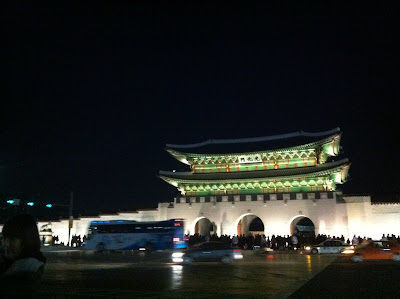February 2011
One of the best ways to get to know a city is to take a city bus. It was rush hour when I left the office. The street was busy and the city lights were starting to lighten up the busy street of Seoul. I was tired. But I needed to move from Gwang hwa moon region to Gang nam region. Geographically, I was crossing the Han River to reach my destination which was far. Yes, Seoul is quite big. Plus rush hour crossing those two regions where it has the highest traffic was a nightmare. No explanation needed to explain the heavy traffic at those two regions.
I was tired after my work and just ready to reach my destination. I wasn't expecting anything else. But that is when I saw Seoul. Seoul all over again. I mean, really, Seoul was big. Not just because of the traffic, but I couldn't help myself but gasph at the energy Seoul city had. It was alive and bright.

I have a short story that I tell my friends lately as comparison. In the past few years, each morning I start off my hour with a jog or long walk. In Geneva, an hour would be a full walk around the lake of Geneva. To make sure I make it a full hour, I had to walk far far away from the main center of city, so by the time I make my turn back toward the city center Geneva city was a little dot. And I would look back with a smile. But in Korea, for just an hour, I walk around my apartment village three times. Yes, just three times!! If I had to do something similaar in Seoul then, like walking across the Han River, that would be about a good couple hours. And Han River is only a small part of Seoul.
That was just the start. As our bus climbed over the Namsan Mountain and passed the beautiful Han River, I saw it and I felt it. Seoul, seoul and Seoul's soul. It was exciting. It was growing. And it was dynamic. I couldn't help myself smiling as I looked down at this city. What excited me the most was I was here. Living here, right now.
And still continuing to reinterpret Korea, my Korea.
Curious? You will see when you come.
Be my guest.







